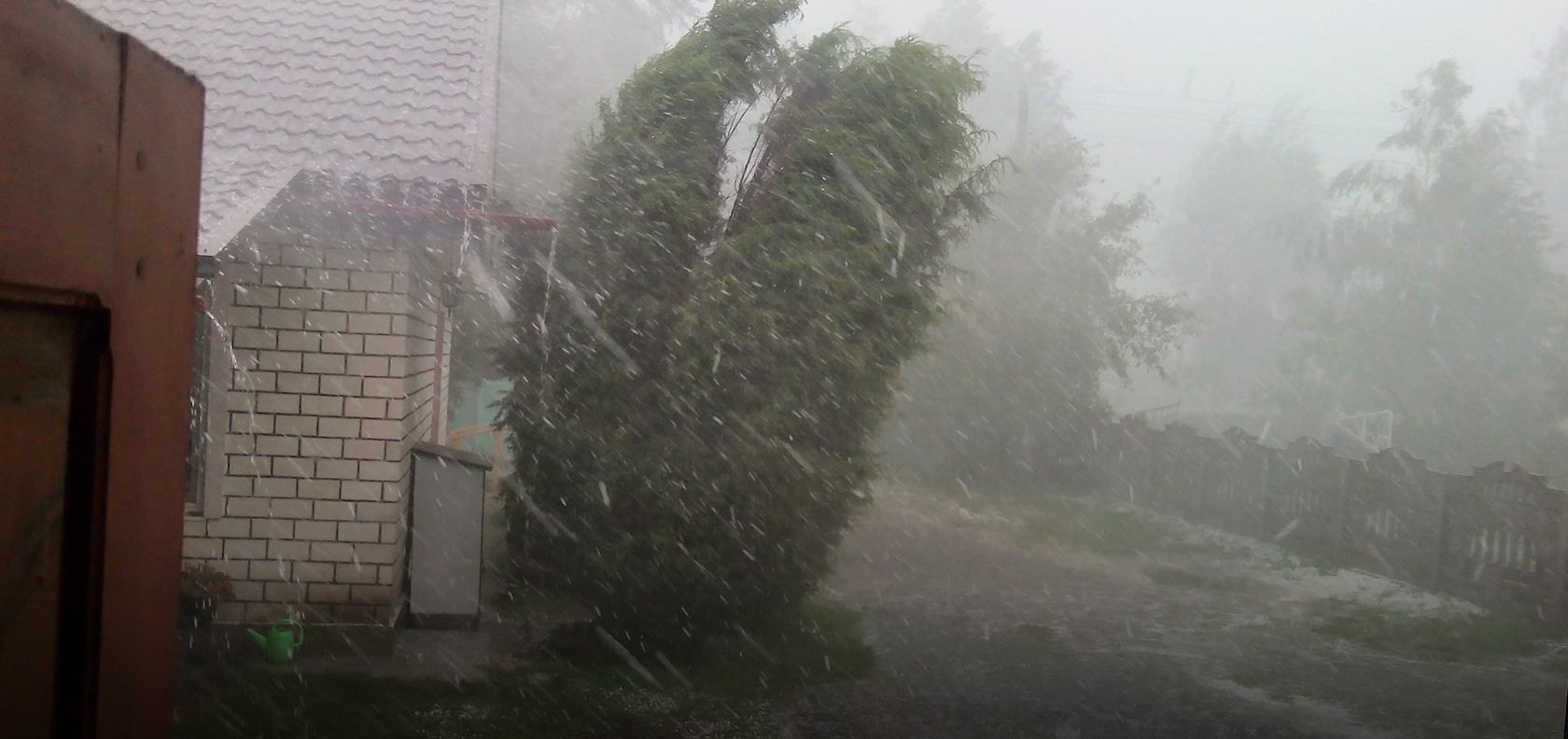Hurricanes can impact people living along coastlines, but they can also cause major damage hundreds of miles inland due to storm surges, heavy winds, rip currents, and flooding.
The Atlantic Hurricane Season begins June 1 and ends November 30, while the Eastern Pacific and Central Pacific Hurricane seasons start a bit earlier on May 15.
There are many ways to ensure you and your family are prepared before a hurricane makes landfall.
When severe weather is imminent, it’s best to rely on official forecasts because certified meteorologists have been tracking the storm based on radar and information from the National Weather Service (NWS). That’s why it’s important to understand the difference between a Hurricane Watch and a Hurricane Warning:
A Hurricane Watch means that hurricane conditions are possible somewhere within the watch area and that tropical storm-force winds are beginning within the next 48 hours. According to the NWS, you should prepare by boarding up windows, moving loose items indoors, and making sure your emergency kit is ready.
A Hurricane Warning means hurricane conditions are expected somewhere within the warning area, and tropical storm-force winds beginning within 36 hours. The NWS suggests seeking shelter in a sturdy structure or evacuating if ordered.
The NWS may send out other watches and warnings during storms including a Storm Surge Watch, a Storm Surge Warning, an Extreme Wind Warning, and a Flash Flood Warning. Still, it’s important to focus on the specific storm category and to remain vigilant, regardless of whether winds and rains have subsided.
Because many watches and warnings can be issued, enabling weather emergency alerts on your mobile devices is a good idea to receive important information. Following the NWS on Facebook or X and subscribing to breaking news alerts for weather via email are also good options.
When it comes to preparing your family and home in case of a hurricane, the NOAA has several recommendations:
Develop an evacuation plan
If there is a need to evacuate your home, develop a plan with your family on how to do so safely and know where you will go ahead of time. Part of this plan should be to know where local shelters are and what alternative routes to take. If you don’t have a car, make a plan on how you would be able to leave.
Practice Drills
Once you decide on an evacuation plan, make sure to have practice drills with the family to ensure everyone knows what to do in a potential emergency.
Create a Communications Plan
In the event you get separated during a disaster, it’s a good idea to have a Family Emergency Communication Plan. Ready.gov has a form you can use and email as a PDF to one another which keeps all your information in one place.
Gather disaster supplies
Making sure you have enough supplies for your household ahead of a hurricane is extremely important as you may not have access to certain things for days or weeks, depending on the storm’s severity. Among the items Ready.gov recommends having on hand are:
- Water
- Non-perishable food
- Pet food
- Medications
- Batteries
- Flashlights
- Chargers
- Disinfectant supplies
- First aid kit
- Battery-powered radio
- Cash
- Whistle (to signal for help)
- Dust mask (to help filter contaminated air)
- Plastic sheeting and duct tape (to shelter in place)
- Moist towelettes, garbage bags, and plastic ties (for personal sanitation)
- Wrench or pliers (to turn off utilities)
Home Preparation
Hurricane-force winds can send outside projectiles into your home so it’s helpful to board up windows and doors with plywood, steel, or aluminum panels to minimize damage. Other damage to your home can happen when rain enters through broken windows, doors, and openings in the roof, according to the Federal Emergency Management Agency (FEMA).
Because of this, FEMA recommends improving your home and property over time by doing the following:
- Replacing gravel or rock landscaping materials with a fire-resistant material.
- Cutting weak branches and trees.
- Keeping shrubbery trimmed.
- Installing storm shutters to protect windows.
- Make sure exterior doors are hurricane-proof.
- Replacing old garage doors and tracks with a door that is approved for both wind pressure and impact protection.
- Sealing outside wall openings such as vents, outdoor electrical outlets, and locations where cables or pipes go through the wall.
Review insurance coverage
It’s a good idea to review your homeowner’s insurance yearly to ensure your policy is up to date and that you have the proper coverage before foul weather comes your way. Your independent agent can always go over your policy with you and make recommendations based on where you live and your region’s level of risk for natural disasters. In addition, you should make sure your documents are stored in a secure place or password-protected online.
It’s also recommended that you document any important possessions by taking photos and writing down serial numbers in the event they are damaged and you might need to provide them when filing a claim.
What if my home is damaged by a hurricane?
The first thing to do after a hurricane or storm is to make sure nobody is hurt. If there is damage to your home or property, the next thing to do is to protect your home from further damage:
- Document the damage as much as possible with photos, videos, or sketches so you can provide them to MAPFRE or your independent agent.
- Call your independent agent to report the damage and begin your claims process. At MAPFRE, you can begin that process online or by calling our 24-hour claim reporting line at 1-800-221-1605.
Will my homeowner’s insurance cover hurricane damage?
If you have a standard homeowner’s policy with MAPFRE, your home will likely be covered for wind damage caused by a windstorm including hurricanes, tornadoes, and severe weather. In certain parts of Massachusetts, insurance companies have implemented mandatory wind or named storm loss deductibles. These deductibles with MAPFRE are offered on a percentage basis determined by the amount of dwelling coverage and the homes proximity to the coastline. Add-on endorsements may be added to your policy to also provide you with extra coverage for things like temporary housing and living expenses should your dwelling become uninhabitable due to storm damage.
We hope you found these tips helpful and that you exercise caution ahead of any hurricane or storm that heads your way. Not a MAPFRE customer yet? Contact an independent agent in your state or get a fast, free car insurance quote in Massachusetts today!



